Vote yourself out of traffic
Mark your calendar on July 31 to vote on the transportation referendum. Voters across Atlanta will decide whether to approve a 1% sales tax across 10 counties to fund a list of transportation projects in these counties.
Among the projects benefiting the Emory community are road, transit, bike, and pedestrian enhancements to the Clifton Corridor. (The Clifton Corridor is the only major employment center in metro Atlanta without rail transit or interstate access.) The projects approved for funding if the referendum is approved include a new light rail line to this area from the Lindbergh MARTA station, with stops at Sage Hill/Briarcliff, the CDC, and Emory, among others. MARTA estimates that in 2030, more than 17,000 people each day would use the line and that travel time from Lindbergh Center to Emory would be 13 minutes.
The line currently is slated to terminate at Emory’s Clairmont Campus, but future plans call for it to extend to the Avondale MARTA station if additional funding becomes available.
The project list also includes funding for the Clifton Road bridge over the CSX railroad to be rebuilt and expanded. Sidewalk and bike lanes will be added. Haygood Road will be resurfaced and realigned starting at Druid Hills High School and will tie into improvements on the CDC campus. Other projects in the area include bike and pedestrian improvements from the City of Decatur to the Clifton Corridor and resurfacing Ponce de Leon from Clifton Road to Spring Street.
Also on the list of improvements is $17 million in funding for a regional mobility call center and enhanced transportation services for senior citizens, including those at Wesley Woods, and people with disabilities. A new streetcar circulating in downtown Atlanta will improve access to Emory Midtown facilities and other in-town destinations.
To learn more about the referendum and the projects it would fund, register to vote online, or download an application for absentee ballot, check out Emory's transportation website at emory.edu/tiredoftraffic.
Highlights of the 2012 Georgia General Assembly
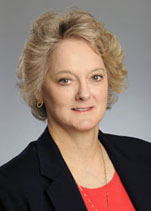 |
|
| Linda Womack, director of state government affairs at Emory |
|
During its 2012 session, which ended in March, the Georgia General Assembly passed tax reform legislation that represents two years of discussion of Georgia's revenue structure. A priority issue for the Woodruff Health Sciences Center, the legislation did not include recommendations made by a Special Tax Council to repeal the sales tax exemption for nonprofit hospitals. Loss of the sales tax exemption would have a huge negative impact on Emory's hospitals, and maintaining this exemption will remain a priority issue on the state government affairs agenda.
Georgia's revenues have been slowly but steadily increasing for the past 18 months, and the House and Senate added $100,000 in the FY 2013 budget for the Emory Autism Center, a measure agreed to by Governor Deal. These funds will allow the center to continue to provide treatment and services for adults with autism. When a young adult reaches the age of 22, he or she loses the ability to access services designated for children that are available through the public schools and through pediatric health care organizations.
Joseph Cubells, director of medical and adult services at the Emory Autism Center, says that this support from the state will allow the Emory Autism Center to continue vital services to the community of adults with autism, including specialized medication evaluation and follow-up, social skills training, behavioral interventions, job-related support, psychotherapy, and family therapy services: "Patients from more than 50 counties in Georgia receive adult medical services from the Emory Autism Center, and we are pleased and grateful for the support that allows us to continue serving these members of our community."
The Legislature also agreed with the Governor's budget proposal of $1.5 million in the FY 2013 state budget for the Georgia Research Alliance (GRA) to fund two Eminent Scholars as well as $8 million in bonds for GRA to purchase equipment and fund research and development infrastructure. Legislation also passed and has been signed by Governor Deal that allows for the investment of state employee retirement funds in various accounts including private investment funds, venture capital funds, leveraged buyouts, and mezzanine funds. The intent is to attract new investments in research start-up companies and keep these companies in Georgia.
Also important to Emory's hospitals in the FY 2012 amended budget is $21 million that will be used to draw down federal matching dollars for the Disproportionate Share Hospital (DSH) program. This is a federal program that is intended to increase health care access for low-income individuals. Hospitals that treat a disproportionate share of Medicaid and other indigent patients qualify for DSH payments, based on the hospital's estimated uncompensated cost of services to the uninsured. Both Emory University Hospital and Emory University Hospital Midtown are eligible for DSH payments that are expected to be made on or before June 30th.—Linda Womack, linda.womack@emory.edu, 404-727-5306
WLA fellows tackle tough issues
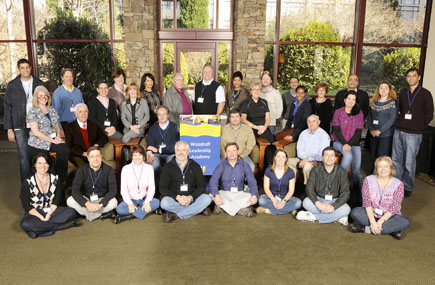 |
| Click on the above image to see a larger version. |
|
Each year, fellows in the Woodruff Leadership Academy (WLA) undergo an extensive leadership curriculum in monthly sessions from January to May. For their extracurricular assignment, they are divided into four groups, each with diverse expertise, to address challenges faced by academic health sciences centers in general and by Emory in particular. Each group chooses one issue from a list of provided topics and spends the next four-plus months exploring their subject and learning from one another.
WLA Dean Gary Teal says their prescription is to define the problem and/or opportunity, research best practices, survey both internally and externally, provide insight, devise solutions, and make recommendations about their issue in the context of the Woodruff Health Sciences Center. Expectations are high and issues weighty. One frequently reported side effect of these efforts, believed to be harmless, is that in working together, often at odd hours at the beginning or end of the day, participants have quite a bit of fun.
In May, the fellows present and defend their findings to a group of faculty, mentors, administrators, and trustees. Following are details about groups and topics of the WLA class of 2012.
Group 1, which called themselves "The Adapt-able Hyphens," comprised Tara Adyanthaya (Office of General Counsel), Therese Baker (RN, unit director, cardiovascular ICU, Emory University Hospital), Craig Coppersmith (MD, transplant ICU), Nael McCarty (PhD, pediatrics), Jeffrey Newport (MD, psychiatry), and Karen Strait (DVM, animal resources). They presented "A proposal to reduce and manage conflict in advanced illness and end-of-life care."
Group 2, "The Cliffhangers," included Volkan Adsay (MD, pathology), Anne Dunlop (MD, preventive medicine), Rishi Gupta (MD, neurology), Janice Lea (MD, nephrology), Arshed Quyyumi (MD, cardiology), Kathleen Rodger (clinical trials director, Winship), and Kathryn Yount (global health, public health). This group presented "Preparing for changes in the research funding climate."
Group 3, "Team Incisive," included Jessica Arluck (MD, gyn/ob), Pat Capes (MD, emergency medicine), George Grant (research and innovation, pastoral services), Sagar Lonial (MD, Winship), Cindy Moore (RN, Emory University Hospital OR), and Leah Phillips (financial planning, Emory Clinic). They addressed "The seven-day-a-week hospital."
Group 4, "Fist of Six," included Wendy Book (MD, cardiology), Sanjay Dhall (MD, neurosurgery), Kendra Moore (finance, gyn/ob), Stephen Pastan (MD, transplant center), Kaiya Valentine (unit director, cardiovascular surgery, EUH Midtown), and John Votaw (PhD, radiology research). They presented "The Center for Diagnostic Medicine (CDM) at Emory: A destination to improve lives one diagnosis at a time." The CDM's mission would be to provide expert diagnostic evaluation for rare, undiagnosed, and/or misdiagnosed conditions.
Managing transitions from hospital to home
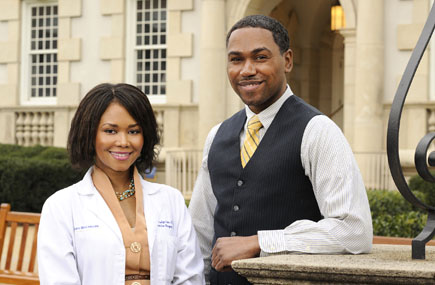 |
| Transition manager Rosalynn Comer and Naph'tali Edge, director of transition management for Emory Healthcare. |
|
"I know more now about my condition than I ever did before, and I've been living with it for years," the patient told Rosalynn Comer, as Comer finished reviewing a booklet on heart failure with him.
It wasn't the first time they had met. As soon as this patient was admitted, Comer saw that his condition and risk factors made him an ideal candidate for her to follow. A transition manager, she is one of a cadre of advanced practice nurses at Emory who work with patients from admission to up to 30 days after discharge.
Like her colleagues, Comer follows patients with certain conditions (for example, post-surgical patients or those with pneumonia or heart failure) and risk factors (lack of transportation, ability to afford medications, or family support) that make them likely to need readmission. Preventing readmissions is good for both patients and hospitals, which are facing reimbursement penalties from the Centers for Medicare and Medicaid Services when patients with certain conditions are readmitted within 30 days.
Transition managers step in to provide a link between patients and health care providers. At Emory all transition managers are nurse practitioners, so they can order tests, interpret results, write prescriptions to adjust medication dosages, and discharge patients.
Currently, Emory employs five transition managers at Emory University Hospital (EUH) and four at EUH Midtown.
Transition managers generally see their patients every day, establishing rapport and making sure the care plans are progressing. "We focus on what happens after patients go home," says transition manager Becky McKee-Waddle. "We make sure they have made follow-up appointments and look for possible red flags. If they experience problems, do they know whom to call? Do they understand their medications?"
"The patients seem so appreciative of the backup," says Denise Lowman-Kedzierski, who works with heart failure patients at EUH who are being evaluated for transplant or ventricular-assist devices and who know their treatment options are diminishing. "They can talk to someone they know, and it gives them a little bit of an umbilical cord. My biggest challenge is managing their fears. In the hospital, they are safe. But they have anxiety when they leave the hospital."
Patients can call transition managers' cell phones with questions. Comer, who works with heart patients, has even had patients call her while they were shopping for groceries to ask about appropriate foods for a low-sodium diet.
The work of Emory transition managers with heart patients is proving especially successful, with the readmission rate for patients with advanced heart failure down 33% at EUH Midtown. The readmission rate among general medicine patients at EUH is down 10%. Other areas in both hospitals also have seen a reduction in readmissions and length of stay.
"Other units at each of these hospitals have asked for transition managers," says Naph'tali Edge, director of transition management for Emory Healthcare. "They feel there is benefit. And other health systems in the state have contacted us to help them initiate a similar program. We are setting the stage for helping patients be successful at home."—Kay Torrance
Meshing opportunity with resources
One in a series of profiles of people in the Woodruff Health Sciences Center
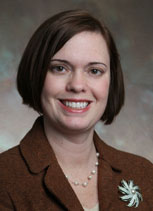 | |
| Heather Hamby |
|
As executive administrator for surgical services, Heather Hamby oversees the first dedicated team focused on improving operating room efficiency in Emory's hospitals. Made up of business staff, the team partners with nursing leadership and staff, surgeons, and anesthesiologists to identify areas for improvement and devises plans of action to make it happen. With the goal of using every OR to maximum capacity, the overall team already has improved on-time starts, OR utilization, and scheduling accuracy, with more upgrades on the horizon.
Hamby also serves as the general academic administrator for the Department of Surgery, providing operational oversight for its research and education programs and for its clinical practice at Grady. She reports to Surgery Chair Chris Larsen but also to Barbara Schroeder, the medical school's executive associate dean for fiscal affairs, and to Don Brunn, president and COO of the Emory Clinic. More than 150 staff report to Hamby or to her managers for finance and operations, academic programs, human resources, information technology, and communications.
"Dr. Larsen and the faculty have the vision," says Hamby, "and we help them make it reality."
In a recent typical week, Hamby met with Larsen, faculty, and architects to review renovation of the residency space in Emory University Hospital. She and the OR team reviewed a proposal for OR expansion before it went to EUH leadership. And she participated in discussions of new faculty hires, helping determine appropriate salary levels and developing proposed offer letters for the dean's office.
The biggest challenge we all face, she says, is meshing opportunities with limited financial resources. Next biggest: not letting the mountain of day-to-day work overshadow long-range strategic goals and objectives.
Hamby, who has an MPH in health policy and management from the Rollins School of Public Health, first joined Emory in 1993 as financial coordinator in Winship’s Bone Marrow Transplant Program. An alum of the Woodruff Leadership Academy, she has leadership in her blood, which explains her eventual rise to be Emory Transplant Center's executive administrator, a role she retained until last year.
Hamby sees in surgery the same vision, energy, and leadership that moved the transplant center into the top 10 in the country. She is proud of having helped build the infrastructure and management team to make that possible. She's also proud of the progress in surgery over the past few years: improved fiscal health and more detailed and accurate reporting methods; stronger administrative structures in sections and across the department; more direct and comprehensive support to a rapidly growing number of investigators; and a nationally respected quality control office, headed by surgeon John Sweeney, that is reducing mortality, morbidity, length of hospital stay, and other quality indicators.
| |
 |
|
From the Executive VP
A special 50th service anniversary
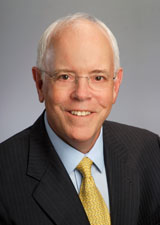 | |
| Wright Caughman |
|
A few months ago, Emory celebrated the service milestones of its most long-serving employees, colleagues who have been with us 20, 30, and even 40 years. And next month, we will celebrate the 50th service anniversary of a man whose singular vision and leadership propelled the Woodruff Health Sciences Center (WHSC) to new heights of achievement: Executive Vice President for Health Affairs Emeritus Dr. Charles Hatcher.
Dr. Hatcher brought his expertise in cardiac surgery to his home state of Georgia in 1962, accepting a position as an assistant professor at Emory at a salary of $13,000 per year. The day after he moved into his office in the basement of the Emory Clinic, he performed Georgia's first successful "blue baby" surgery—one of many firsts he would eventually perform, including Georgia's first double and triple valve replacements and its first coronary bypass.
In 1971 Dr. Hatcher was named Emory's chief of cardiothoracic surgery, and under his leadership Emory became one of the nation's largest and most effective centers for open heart surgery. In spite of accepting the sickest patients from across the state and region, Emory consistently achieved lower mortality rates than its peers. In fact, less than 1% of centers nationwide could match its statistics.
It soon became evident that Dr. Hatcher was an outstanding leader as well as clinician. He was elected to partnership in the Emory Clinic just one year after joining the faculty, and he was named its director in 1976. He knew how to build teams and how to make a division successful both clinically and financially. So it came as no surprise when, in 1983, then President James Laney asked Dr. Hatcher to serve as interim director of the Woodruff Health Sciences Center. Over the next 13 years, he would lead the WHSC on an impressive trajectory, developing a structure for the medical school's expanding training programs, creating Georgia's first school of public health, making WHSC a major research institution, expanding WHSC's facilities, and building and maintaining a patient care program to meet the needs of the state and the region.
Despite officially "retiring" in 1996, Dr. Hatcher still maintains an office on campus and continues to bring his leadership and skill to the service of Emory every week. Dr. Hatcher continues to be a friend and mentor to all the leaders of the Woodruff Health Sciences Center and to actively contribute to our success.
There's a reason why Dr. Hatcher and all of our long-serving colleagues continue to be excited to be at Emory. We have tremendous advantages and opportunities and a unique environment that gives us great reason for optimism, even in today's challenging environment. We have the benefit of being a critical part of a stellar university—a place where great work is being done and where there's a spirit of collegiality, courage, determination, and support that allows us to accomplish so much, and to set our sights on the future with confidence. Together we have an edge, a collective aspiration, and expectation that we will excel.
Sincere thanks and congratulations to Dr. Hatcher and to all the people who celebrated service milestones this year.
(evphafeedback@emory.edu)
In brief
Marcus Foundation funds new professorships
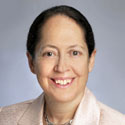 |
|
| Barbara Stoll |
|
The Marcus Foundation, chaired by Home Depot co-founder Bernie Marcus, has committed $5 million to the Department of Pediatrics. The funding will create the Marcus Society, with 15 Marcus Professors in Pediatrics—six existing Marcus Professors and nine who are newly funded—and host an annual visiting scholar, says Barbara Stoll, chair of pediatrics. The Marcus professorships represent the greatest concentration of academic positions funded by a single donor in any one area at Emory.
New Midtown ICU
A new state-of-the-art ICU opened its doors in late May at Emory University Hospital Midtown to meet increasing demand for critical care services. The 12-bed ICU is specifically for cardiothoracic and vascular patients.
The $8 million project features patient rooms almost twice the size of previous ICU rooms, moveable power columns and computers, lifts and oversized furniture for bariatric patients in all rooms, as well as dialysis connections in all rooms. Staff can stock cabinets from the outside of the room to cause fewer disturbances to patients.
In the hallway, there are six pods—each supporting two ICU rooms—that serve as nursing stations. A team work center in the front of the ICU will serve as a two-way communication between all of the patient rooms and the center itself.
Read more.
New chaplain training program in palliative care
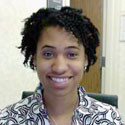 |
|
| Krisha Arvin |
|
Krisha Arvin is the inaugural fellow in a new one-year chaplaincy training program in palliative care sponsored by Emory Healthcare. Based at Emory University Hospital (EUH), the program is aimed at experienced chaplains. Arvin, who has an MDiv from Candler and completed an internship at EUH Midtown, has worked as chaplain and bereavement coordinator for a local hospice organization as well as with LifeLink of Georgia. The new program was formed through a collaboration between Woody Spackman (Emory Center for Pastoral Services) and Tammie Quest (Emory Palliative Care Center).
Awards for Emory University Hospital
Emory University Hospital (EUH) earned the Outstanding Achievement Award from the Commission on Cancer of the American College of Surgeons in recognition of its high-quality care to cancer patients. EUH is the only hospital in Atlanta and one of just 106 nationally to be granted the award this year.
EUH also has received the American Heart Association/American Stroke Association's Get With the Guidelines: Stroke Gold Plus Quality Achievement Award to recognize its success in stroke patient care.
Finally, the Society of Hospital Medicine chose an EUH team's poster as the Innovation category winner. The poster details how structured interdisciplinary bedside rounds (SIBR), developed at EUH, improved patient outcomes. The poster also was a finalist in the research category.
Notable
 |
|
| Lynne Anderson |
|
Lynne Anderson was appointed director of communications for the Winship Cancer Institute. She has served as Winship's communications manager for more than a year. Before joining Winship, Lynne was managing editor for CURE, a national cancer magazine, and a medical writer for the Atlanta Journal-Constitution.
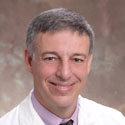 |
|
| Jonathan Beitler |
|
Last month, Jonathan Beitler (Winship Cancer Institute) was honored by Atlanta Business Chronicle as a winner in the military service category in its annual Healthcare Hero competition. Ken Brigham (predictive health), Charles Moore (otolaryngology), and Michael Frankel (neurology) were honored as finalists in other categories.
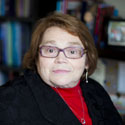 |
|
| Sarah Freeman |
|
Sarah Freeman received the Emory University Scholar/Teacher Award last month. This award is chosen by President James Wagner from nominations by the deans on behalf of the United Methodist Church Board of Higher Education and Ministry. Read more.
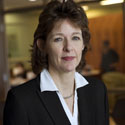 |
|
| Kathy Kinlaw |
|
Kathy Kinlaw (ethics center) was appointed to the ethics and professionalism committee of the Federation of State Medical Boards.
 |
|
| Kim Manning |
|
Kim Manning received the 2012 Evangeline Papageorge Teaching Award. She is an internist at Grady and a School of Medicine society adviser. The identity of the Papageorge Award recipient is a closely guarded secret each year, revealed at the medical graduation ceremony. Read her blog about receiving this surprise award.
 |
|
| Sampath Pralahad |
|
Sampath Pralahad was named division chief of pediatric rheumatology. He came to Emory in 2009 and holds appointments in pediatrics and human genetics.
Events
Oct. 13: Winship 5K Win the Fight Walk/Run to support cancer research and care. Register online. |

